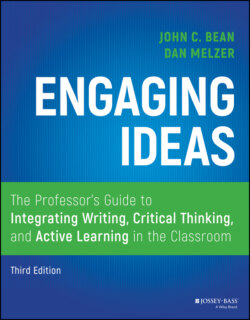Читать книгу Engaging Ideas - John C. Bean - Страница 63
Teaching Thinking through Teaching Revision
ОглавлениеComposition research confirms that most students do not revise their essays, as the term revise is understood by expert writers. Of course, students think they are revising, but usually they are merely editing—checking spelling, making word substitutions, tinkering with sentences, deciding on punctuation. (Classic early studies of the revising behavior of novices versus experts include Beach, 1976; Faigley and Witte, 1981; Flower, 1979; and Sommers, 1980. More recent works on teaching revision include Booth, Colomb, and Williams, 2008; Gopen, 2004; Harris, 2006; and Lindenman, Camper, Dunne Jacoby, and Enoch, 2018.)
What our students need to understand is that for expert writers the actual act of writing causes further discovery, development, and modification of ideas. If one examines the evolving drafts of an expert writer, one sees the messy, recursive process of thinking itself as new ideas emerge during the drafting process. Expert writers do extensive rewriting, the final products often being substantially different from the first drafts.
The foregoing description differs from an older positivist model of the writing process that many of us of a certain age were taught in school. The old model looked like this:
